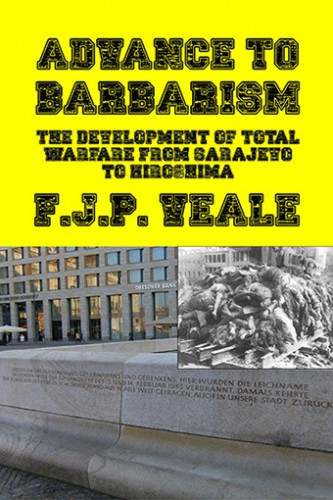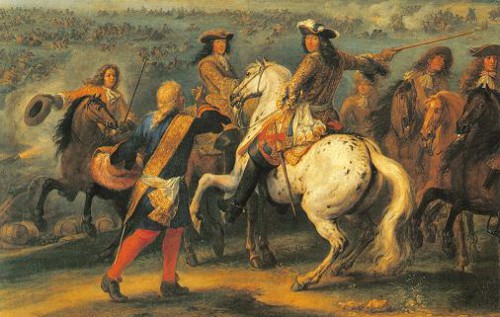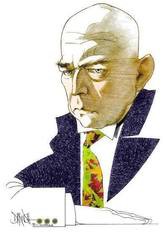Bien sûr, la France a encore de beaux restes. Mais pour combien de temps encore ? La dégradation de la vieille Nation, mal entretenue, mal gouvernée et envahie se poursuit inexorablement. Voici les douze plaies qu’on peut diagnostiquer. Après, j’expliquerai pourquoi il ne faut pas désespérer.
1 Immigration de masse qui modifie le paysage anthropologique millénaire. Il s’agit d’une colonisation de peuplement (par le bas) qui risque d’aboutir à un remplacement de population, donc à terme, à la fin de la France, sur les plans anthropologique, culturel et même linguistique. Cette colonisation est au mieux ignorée, au pis favorisée (pompe aspirante des aides sociales, inexpulsabilité, régularisations, naturalisations etc.) par les élites politiques, avec la complicité du système judiciaire.
2 Islamisation rampante de la société qui bouleverse l’identité culturelle et qui a pour finalité, conformément à la logique universelle de l’islam, la conquête totale du pays. Sur fond d’aveuglement et de déni des élites, voire souvent de complicité collaborationniste (ethnomasochisme). L’ignorance profonde de la nature de l’islam (l’inculture des énarques) est la toile de fond du système mental de nos dirigeants politiques et médiatiques.
3 Économie étatisée, socialisée, endettée, surfiscalisée, fabrique de chômage de masse, de désindustrialisation et de récession endémique. Avec baisse du niveau de vie des classes moyennes, dégradation de la productivité et de la compétitivité du tissu économique des PME seul créateur réel de richesses et d’emplois, et poids de plus en plus coûteux de fonctions publiques pléthoriques. Les dirigeants politiques français et les élus étant en majorité des fonctionnaires, il leur est difficile de comprendre le fonctionnement de l’économie réelle, c’est à dire de ceux qui gagnent leur vie en produisant
4 Système éléphantesque d’Éducation publique en plein échec qui n’assure plus la transmission des savoirs, de la culture européenne et des compétences ni l’ascension sociale et la circulation des élites. L’enseignement de l’ histoire de France, dénigrée, est sabordé ; déculturation, déracinement et apologie des cultures immigrées prévalent (xénophilie) Seul l’enseignement privé payant, réservé à la bourgeoisie, reste à niveau. L’enseignement public gratuit produit illettrisme et ignorance, avec un coût de fonctionnement parmi les plus élevés au monde.
5 Fuite accélérée à l’étranger des cerveaux, des fortunes, des jeunes forces vives. On estime à deux millions de Français les expatriés. Ils cherchent à échapper à une fiscalité délirante. Leur travail et leurs investissements seront toujours ça de moins pour la France. Les bac +6 sont remplacés par les bac-6. On n’aime pas les riches ni la réussite : c’est immoral. Les riches iront ailleurs créer des emplois et investir. En France, on restera entre pauvres. Mais la classe politique n’a pas de soucis à se faire, pour l’instant, elle vit sur vos impôts.
6 Criminalité, délinquance, insécurité en hausse quantitative et en extension géographique constantes qui dégradent le cadre de vie. Les deux causes sont l’immigration incontrôlée et le laxisme judiciaire, provoqué par l’idéologie gauchiste de la nouvelle magistrature, appuyée par les instances européennes. Plus la criminalité (étrangère à 90%) augmente, moins on la réprime. C’est la nouvelle ”démocratie” et l’idéologie des ” Droits de l’homme”, qui sont en réalité des machines de guerre contre le peuple de souche.
7. Dégradation de la riposte judiciaire à la criminalité, ce qui l’encourage, avec, pour corollaire paradoxal, le durcissement de la répression pour les Français de souche, en particulier dans le secteur fiscal. Deux poids, deux mesures, même dans le domaine du droit commun : tolérance pour l’étranger, sévérité pour le concitoyen. La criminalité immigrée est objectivement protégée et encouragée par l’État ”français”. La police, démotivée, est inopérante et risque d’être remplacée par des milices d’autodéfense populaires, brutales et efficaces.
8. Débandade de l’État souverain, à la fois ligoté par une Union européenne mal conçue et par une soumission déshonorante de sa politique étrangère à Washington. (1) Ce à quoi il faut ajouter les coupes constantes dans le budget de la Défense, qui ont deux effets désastreux : perte progressive de l’autonomie militaire et affaiblissement de l’outil industriel de haute technologie.
9. Liberté d’expression en déclin. Émergence d’un pouvoir répressif néo-totalitaire soft visant à punir ou à marginaliser les opinions dissidentes. La religion idéologique d’État, monopolistique, est intolérante pour qui défend l’identité française et européenne, et tolérante pour qui la combat. Logique ethnomasochiste, et syndrome du collabo, présente depuis longtemps chez les élites françaises. Les grands médias français, écrits ou audiovisuels, soumis au ”politiquement correct”, pratiquent, sauf exceptions, la censure et la fermeture d’esprit. La France est mal classée dans la hiérarchie des pays qui présentent une diversité et une liberté d’expression publique.
10. Médiocrité de la classe politique, pas au niveau, droite et gauche confondues. L’explication est simple : des incompétents qui font carrière. Députés en majorité fonctionnaires, énarques coupés des réalités dans l’appareil d’État, absence générale de deux choses essentielles : 1) l’amour du pays, de la patrie, dans sa dimension historique, et non pas seulement la drague démagogique envers des électeurs ; 2) la compétence, notamment en matière économique, remplacée par des dogmes idéologiques. Globalement, la carrière politique n’attire plus les vraies élites, mais les intrigants. La classe politique regroupe ce qu’on pourrait appeler ” la lie de l’élite”.
11. Effondrement de la créativité culturelle. L’ ”exception culturelle française”, subventionnée par l’État pachydermique, n’accouche que de souris. Le Festival d’Avignon, vitrine brisée, en est la preuve. Subventionner la culture (intermittents du spectacle !), c’est tuer la création, c’est la fonctionnariser. La force culturelle, c’est la liberté. De plus, l’enseignement des savoirs traditionnels disciplinaires (linguistiques, plastiques, etc.) étant abandonné par l’idéologie nihiliste et anarchisante dominante, la créativité futuriste est asséchée. L’arbre ne pousse que sur des racines, l’innovation est fille et n’est fille que de la Tradition.
12 Faiblesse démographique de la France européenne de souche. On se félicite que la fécondité française soit au dessus de celle nos voisins européens. Illusion. Déjà, en elle-même, elle n’est même pas suffisante pour renouveler les générations. Et surtout, elle est artificiellement haussée par la natalité immigrée. Globalement, la natalité française autochtone décline, comme chez nos voisins européens. C’est là le point le plus important de ce diagnostic, la plaie la plus inquiétante. Car un peuple, une nation ne sont pas des abstractions, des ”idées”. Ce sont des réalités charnelles, c’est-à-dire ethniques, comme d’Aristote à Péguy beaucoup l’ont compris. Ce qui signifie, en terme de réalisme biologique, qu’un peuple qui ne reproduit pas ses générations de souche (et qui, de surcroît, affronte une flux migratoire plus fécond) entame la pente de sa disparition. L’histoire est un cimetière.
Faut-il désespérer ? Non
Il ne s’agit pas d’être stupidement pessimiste ou béatement optimiste mais cyniquement réaliste. La France ressemble à un être qui a d’immenses qualités mises en danger par de terribles défauts ; à un malade qui est touché mais qui peut encore se guérir. Le problème central se résume à ce constat : c’est le peuple français lui-même, dans son tréfonds, et pas seulement dans ses élites, qui creuse sa tombe : idéal fonctionnarisé, culte du travail minimal et du ”petit loisir”, ressentiment envers la réussite des ”riches”, égalitarisme qui préserve ses propres privilèges corporatistes, tolérance inconsciente envers l’invasion migratoire, propension apeurée à la collaboration avec les envahisseurs, etc.
Ce sont les valeurs qui sont en cause. Le mal touche 50% des Français, ce qui est déjà énorme. Pourtant le génie français n’est pas un vain mot, dans tous les domaines. Mais il ne concerne qu’une minorité. Une minorité active qui existe dans toutes les classes sociales. Le génie français (part intégrée du génie européen de tous nos peuples frères) n’est pas mort, il est en danger. Il est menacé à la fois par les envahisseurs et par leurs collaborateurs, chez les élites, les sabordeurs. La France ne peut pas changer tranquillement ; elle doit se reprendre par des révolutions, des crises et non par des réformes. Il faut une rage de dents pour oser aller chez le dentiste.
Mais les choses évoluent et la prise de conscience, donc la révolte de la France profonde sont une possibilité. Le Front National est un élément de l’équation, mais il n’est pas le seul car l’imprévu peut surgir d’où on l’attendait pas. D’un point de vue, ”dialectique”, dirions nous, l’échec de l’intégration et de l’assimilation est positif. À quelque chose malheur est bon. Le pire eût été que les immigrés se rallient en masse au modèle français, se sentent charnellement français et européens. Au contraire, la réislamisation et les revendications identitaires des immigrés sont positives en ce qu’elles marquent clairement la différence avec le peuple de souche. De même, la prise de conscience d’une cohabitation impossible, notamment avec la criminalité immigrée, peut réveiller le peuple de souche. Les lois sur les logements sociaux obligatoires, durcies à partir de 2015, vont désillusionner les Français et leur faire juger sur pièces l’enfer utopique de la cohabitation ethnique.
Sans le savoir, le gauchisme immigrationniste et islamophile favorise le réveil de l’identité franco-européenne, y compris dans les classes moyennes supérieures, jadis préservées. L’utopie de l’idée française comme appartenance strictement intellectuelle (ou linguistique) s’effondre. Se rétablit la vieille notion aristotélicienne, d’une justesse solaire, qu’un peuple, qu’une nation, qu’une Cité, bref que l’essence d’une communauté politique et historique sont fondées sur la philia, c’est à dire sur l’appartenance aux mêmes racines ethno-culturelles. Entre parenthèses, De Gaulle avait la même idée ethno-culturelle de la France, ce que les pseudo-gaullistes actuels, occultent.
En cela, l’idée du Front National (influencé par l’ex-marxiste Alain Soral, créateur de l’association Égalité et Réconciliation) de mettre l’accélérateur sur l’ ”intégration” relève de l’utopie ; et d’une méconnaissance fondamentale de ce qu’est l’islam, qui ne vise ni l’égalité ni la réconciliation mais la soumission. Le fameux génie français est fragile. Si les meilleurs partent et sont remplacés par des bras cassés ou des fanatiques au cerveau de poule, l’avenir sera noir. Ce que je dis là de la France, « cher pays de mon enfance » est applicable à nos voisins européens. Je suis patriote français et nationaliste européen –y compris pour la Russie, voire même pour l’Amérique du Nord d’origine européenne, projection de l’Europe. Mais c’est un autre débat.
Quand on y réfléchit, les maux qui nous accablent sont très voisins de ceux qui ont précipité la fin de l’Empire romain. Ce dernier, entre la fin du IIIe siècle et le milieu du Ve a chuté pour trois causes : un État Providence (panem et circenses) dispendieux et créateur d’oisiveté entretenue, une fiscalité de vautours et une impuissance face aux invasions barbares. La seule solution pour la France, c’est, à mon sens, la révolution. Elle procèdera du choc du réel, d’un prise de conscience, d’un ”ras le bol” dans la vie quotidienne. L’hypothèse révolutionnaire est la seule crédible pour la France – et peut-être l’Europe. Seul le chirurgien peut guérir les plaies du malade, pas le psychiatre. La France doit passer au bloc opératoire. C’est dur, douloureux, mais on s’en sort. C’est mieux que de dépérir dans un lit. La guerre ou la mort.
(1) Je ne suis pas dogmatiquement anti UE ou anti USA mais seulement critique de manière concrète.





 del.icio.us
del.icio.us
 Digg
Digg “
“
 Vattel points out that war as a means to settle disputes “can only serve this purpose if, in the first place, it be conducted by methods which do not leave behind a legacy of hatred and bitterness…”
Vattel points out that war as a means to settle disputes “can only serve this purpose if, in the first place, it be conducted by methods which do not leave behind a legacy of hatred and bitterness…”
 L'opera che più di tutte accompagnò la prima guerra mondiale e che dette il nome alla letteratura della crisi che poi ne seguì, in realtà fu scritta prima del conflitto. Era infatti il 1914, giusto cent'anni fa, quando Oswald Spengler concluse Il tramonto dell'Occidente; poi quel titolo divenne l'epigrafe del dopoguerra e il suo compendio, almeno mitteleuropeo. L'opera vide la luce sul finire della prima guerra mondiale e fu un trionfo di vendite e commenti. Uscì in ritardo per via della guerra, e questo permise a Spengler di rielaborare alcune pagine e aggiungere nuovi particolari. Tuttavia era stata scritta e pensata non alla luce della guerra e del suo esito, ma prima, in uno sguardo epocale alle civiltà del passato e del presente. Per l'avvenire Spengler prevedeva lo scontro finale fra la dittatura del denaro e la civiltà del sangue, del lavoro e del socialismo. Alla fine, vaticinava, la spada trionferà sul denaro perché una potenza può essere rovesciata solo da una potenza.
L'opera che più di tutte accompagnò la prima guerra mondiale e che dette il nome alla letteratura della crisi che poi ne seguì, in realtà fu scritta prima del conflitto. Era infatti il 1914, giusto cent'anni fa, quando Oswald Spengler concluse Il tramonto dell'Occidente; poi quel titolo divenne l'epigrafe del dopoguerra e il suo compendio, almeno mitteleuropeo. L'opera vide la luce sul finire della prima guerra mondiale e fu un trionfo di vendite e commenti. Uscì in ritardo per via della guerra, e questo permise a Spengler di rielaborare alcune pagine e aggiungere nuovi particolari. Tuttavia era stata scritta e pensata non alla luce della guerra e del suo esito, ma prima, in uno sguardo epocale alle civiltà del passato e del presente. Per l'avvenire Spengler prevedeva lo scontro finale fra la dittatura del denaro e la civiltà del sangue, del lavoro e del socialismo. Alla fine, vaticinava, la spada trionferà sul denaro perché una potenza può essere rovesciata solo da una potenza.